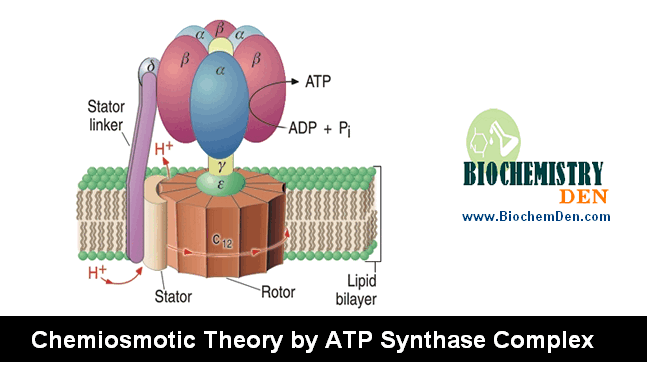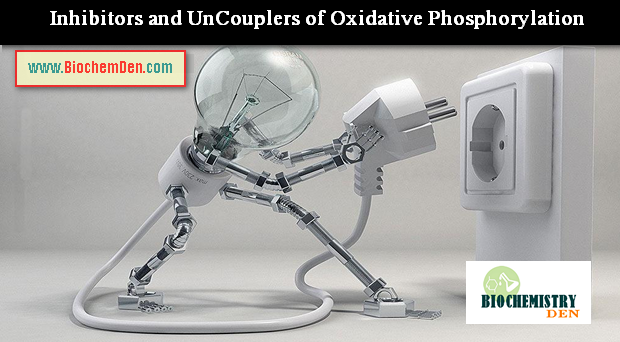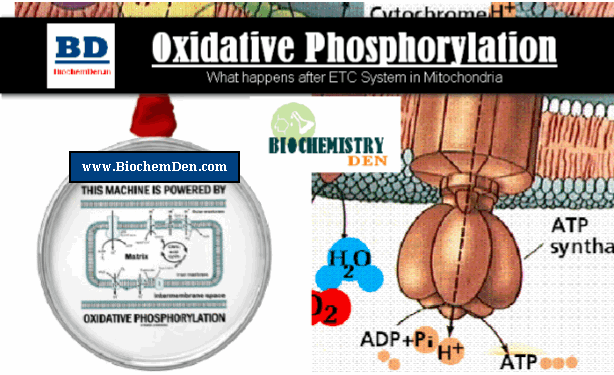Antioxidants and free radicals are terms commonly used in discussions related to health and nutrition. Antioxidants protect the body against the harmful effects of free radicals. In this article, we will discuss the definitions of antioxidants and free radicals and the importance of antioxidants in protecting against free radicals.
Definition of antioxidants
Antioxidants are molecules that can neutralize or prevent the harmful effects of free radicals. Antioxidants work by stabilizing free radicals, preventing them from damaging other molecules in the body. They are naturally present in many foods and can be obtained through supplements.

Definition of free radicals
Free radicals are highly reactive molecules that can damage other bodily molecules. They are formed as byproducts of normal cellular processes and can also be produced by exposure to environmental factors such as pollution and radiation. Free radicals can cause damage to cell membranes, DNA, and other cellular structures, leading to a range of health problems.
Importance of antioxidants in protecting against free radicals
Antioxidants are essential in protecting the body against the harmful effects of free radicals. By neutralizing free radicals, antioxidants can help to prevent damage to cells and tissues and reduce the risk of chronic diseases such as cancer, heart disease, and Alzheimer’s disease. In addition to their protective effects, antioxidants have other health benefits, including improved immune function and anti-ageing effects.
In summary, antioxidants are essential compounds that protect the body against the harmful effects of free radicals. By stabilizing free radicals, antioxidants can prevent damage to cells and tissues and reduce the risk of chronic diseases. In the following sections, we will discuss the sources of antioxidants and free radicals and how antioxidants work to protect the body.
What are free radicals?
Free radicals are highly reactive molecules that can cause damage to other molecules in the body. They are formed as a natural byproduct of cellular processes and can also be produced by exposure to environmental factors such as pollution and radiation. In this section, we will discuss the definition and properties of free radicals, their sources, and their harmful effects on the body.
Definition and properties of free radicals
Free radicals are molecules that have an unpaired electron in their outer shell. It makes them highly reactive, as they constantly seek to pair up with another electron to stabilize themselves. It can cause them to steal electrons from other molecules in the body, leading to damage and cell death.
Sources of free radicals
Free radicals are produced as a byproduct of normal cellular processes such as metabolism and respiration. They can also be produced by exposure to environmental factors such as pollution, radiation, and cigarette smoke. In addition, certain lifestyle factors, such as a diet high in saturated and trans fats and excessive alcohol consumption, can also increase the production of free radicals.
Harmful effects of free radicals on the body
Free radicals can cause damage to cell membranes, DNA, and other cellular structures, leading to a range of health problems. It can include chronic diseases such as cancer, heart disease, and Alzheimer’s disease, as well as premature ageing and other degenerative conditions. In addition, free radicals can damage the immune system, making it harder for the body to fight infections and illnesses.
In summary, free radicals are highly reactive molecules that can cause damage to other molecules in the body. They are produced as a natural byproduct of cellular processes and can also be produced by exposure to environmental factors and confident lifestyle choices. Free radicals can cause various health problems, including chronic diseases and premature ageing. In the following sections, we will discuss the role of antioxidants in protecting the body against the harmful effects of free radicals.
What are antioxidants?
Antioxidants are compounds that can neutralize or prevent the harmful effects of free radicals. This section will discuss the definition and properties of antioxidants, their sources, and the different types of antioxidants.
Definition and properties of antioxidants
Antioxidants are molecules that can stabilize free radicals by donating an electron. It prevents the free radicals from damaging other molecules in the body. Antioxidants can also repair the damage that free radicals have already caused. They are naturally present in many foods and can be obtained through supplements.
Sources of antioxidants
Antioxidants are found in various foods, including fruits, vegetables, nuts, seeds, whole grains, herbs and spices. Some of the best sources of antioxidants include berries, citrus fruits, leafy greens, and dark chocolate. Antioxidants can also be obtained through supplements, although obtaining them through a healthy diet is generally recommended.
Types of antioxidants
There are many different types of antioxidants, each with unique properties and benefits. Some of the most common types of antioxidants include:
- Vitamin C: Found in citrus fruits, kiwi, and broccoli, vitamin C is a powerful antioxidant that can help to boost the immune system and promote healthy skin.
- Vitamin E: Found in nuts, seeds, and leafy greens, vitamin E is a fat-soluble antioxidant that can help to protect cell membranes from damage.
- Carotenoids: It is present in orange and yellow fruits and vegetables. Carotenoids are antioxidants that can help to protect the eyes and reduce the risk of certain types of cancer.
- Flavonoids are present in tea, red wine, and dark chocolate. Flavonoids are antioxidants that can help to reduce inflammation and improve heart health.
Antioxidants are compounds that can neutralize or prevent the harmful effects of free radicals. They are naturally present in many foods and can be obtained through supplements. There are many different types of antioxidants, each with unique properties and benefits. In the following sections, we will discuss how antioxidants protect the body against free radicals and the health benefits of antioxidants.
How do antioxidants protect against free radicals?
Antioxidants protect against free radicals by neutralizing them and preventing them from causing damage to other molecules in the body. In this section, we will discuss the mechanisms of action of antioxidants and provide examples of antioxidant compounds and their protective effects.
Mechanisms of action of antioxidants
There are several ways that antioxidants can protect against free radicals, including:
- Donating electrons: Antioxidants can donate electrons to free radicals, stabilizing them and preventing them from stealing electrons from other molecules.
- Chelating metals: Some antioxidants, such as vitamin C, can chelate or bind to metals such as iron, which can help to prevent the formation of free radicals.
- Inducing enzyme activity: Some antioxidants, such as sulforaphane found in broccoli, can induce enzyme activity that can help neutralize free radicals.
Examples of antioxidant compounds and their protective effects
- Vitamin C: This antioxidant can donate electrons to free radicals and regenerate other antioxidants, such as vitamin E. Vitamin C can help boost the immune system and protect against oxidative stress.
- Vitamin E: This fat-soluble antioxidant can protect cell membranes from damage and help prevent the formation of harmful compounds such as lipid peroxides.
- Carotenoids: These antioxidants can help to protect the eyes from damage caused by free radicals and can also help to reduce the risk of certain types of cancer.
- Flavonoids: These antioxidants can help to reduce inflammation, improve heart health, and protect against certain types of cancer.
- Selenium: This mineral acts as an antioxidant in the body and can help to protect against oxidative stress and inflammation.
Antioxidants protect against free radicals by neutralizing them and preventing them from causing damage to other molecules in the body. Antioxidants work through various mechanisms, including donating electrons, chelating metals, and inducing enzyme activity. There are many different types of antioxidant compounds, each with unique properties and protective effects. In the following section, we will discuss the health benefits of antioxidants and how to obtain them through a healthy diet.
Health Benefits of Antioxidants
Antioxidants are essential for maintaining good health and preventing chronic diseases. In this section, we will discuss the health benefits of antioxidants, including their role in reducing the risk of chronic diseases, improving immune function, and providing anti-ageing effects.
Reduced risk of chronic diseases
Antioxidants can help reduce the risk of chronic diseases like cancer, heart disease, and diabetes. Free radicals can cause damage to cells and DNA, leading to the development of these diseases. Antioxidants can neutralize free radicals and prevent this damage from occurring. For example, the carotenoids found in fruits and vegetables have been shown to reduce the risk of lung, prostate, and breast cancer.
Improved immune function
Antioxidants can also help to improve immune function by protecting against oxidative stress. Oxidative stress can weaken the immune system and make it more susceptible to infections and diseases. Antioxidants can help to protect against this by neutralizing free radicals and reducing the inflammation that can weaken the immune system. Vitamin C, for example, has been shown to improve immune function and reduce the severity and duration of colds and other infections.
Anti-ageing effects
Antioxidants can also have anti-ageing effects by protecting against the damage caused by free radicals. Free radicals can cause damage to cells and tissues, leading to signs of ageing such as wrinkles, age spots, and loss of elasticity.
Antioxidants can help to prevent this damage by neutralizing free radicals and promoting the production of collagen, which is essential for maintaining healthy skin. Vitamin E, for example, has been shown to improve skin texture and reduce the appearance of fine lines and wrinkles.
The antioxidants have many health benefits, including reducing the risk of chronic diseases, improving immune function, and providing anti-ageing effects. These benefits are due to the ability of antioxidants to neutralize free radicals and prevent them from causing damage to cells and tissues.
To obtain the health benefits of antioxidants, it is essential to eat a healthy diet that includes a variety of fruits, vegetables, nuts, seeds, whole grains, and other antioxidant-rich foods.
Food Sources of Antioxidants
Antioxidants are found in various foods, especially fruits, vegetables, nuts, seeds, and herbs. This section will discuss some of the best food sources of antioxidants.
Fruits and vegetables:
Fruits and vegetables are excellent antioxidants, including vitamins C and E, carotenoids, flavonoids, and other polyphenols. Some of the best sources of antioxidants in fruits and vegetables include:
- Berries (such as blueberries, raspberries, and strawberries)
- Citrus fruits (such as oranges and grapefruit)
- Leafy greens (such as spinach and kale)
- Cruciferous vegetables (such as broccoli and cauliflower)
- Tomatoes
- Sweet potatoes.
Nuts and seeds:
Nuts and seeds are also good antioxidants, especially vitamin E and other polyphenols. Some of the best sources of antioxidants in nuts and seeds include:
- Almonds
- Walnuts
- Pistachios
- Pecans
- Chia seeds
- Flaxseeds.
Herbs and spices:
Herbs and spices are other excellent sources of antioxidants, especially flavonoids and other polyphenols. Some of the best sources of antioxidants in herbs and spices include:
- Turmeric
- Cinnamon
- Oregano
- Rosemary
- Thyme
- Sage.
Many food sources of antioxidants include fruits, vegetables, nuts, seeds, and herbs. By incorporating various antioxidant-rich foods into your diet, you can help protect your body against free radicals and reduce your risk of chronic diseases.
Conclusion
In this post, we have discussed the importance of antioxidants in protecting against free radicals and maintaining good health. Here is a recap of some of the key points we covered:
- Free radicals are unstable molecules that can cause damage to cells and tissues, leading to chronic diseases and other health problems.
- Antioxidants are compounds that can neutralize free radicals and prevent this damage from occurring.
- Antioxidants are found in various foods, especially fruits, vegetables, nuts, seeds, and herbs.
- It can provide many health benefits, including reducing the risk of chronic diseases, improving immune function, and providing anti-ageing effects.
Antioxidants are crucial in maintaining good health by protecting the body against free radicals and their harmful effects. By eating a diet rich in antioxidant-rich foods and leading a healthy lifestyle, you can help to support your body’s natural defences and reduce your risk of chronic diseases. Incorporating various antioxidant-rich foods into your diet is a simple and effective way to support your overall health and well-being.
Discover more from Biochemistry Den
Subscribe to get the latest posts sent to your email.




